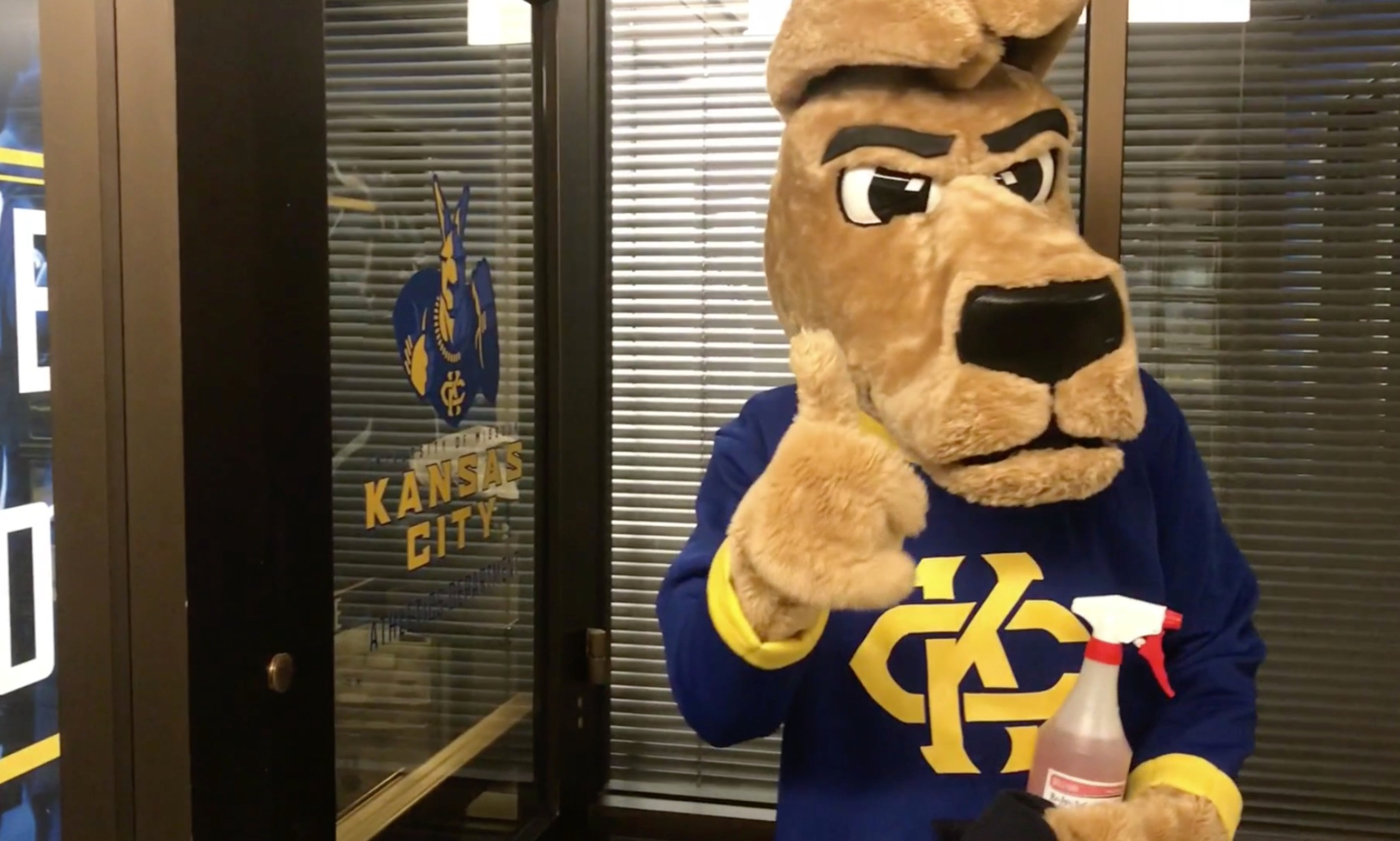It was a year like no other, for the world, and for UMKC. During 2020, our university community weathered the storm of the COVID-19 pandemic, while setting new records for research grants and philanthropic gifts, raising graduation rates and participating in a nationwide awakening to our longstanding national failure to achieve racial justice.
Here is a look back over a year that will be long remembered.
COVID-19
The numbers are difficult to comprehend: COVID-19 has claimed the lives of more than 280,000 Americans, more than 1.5 million worldwide. The arrival of the pandemic in our region led to a sudden shift to all-online instruction in March, and significant changes to the way we teach, learn, work and live on campus ever since. Roos rose to the challenge, embraced best practices and kept the number of cases on campus significantly lower than in the surrounding community.
A Record for Research
UMKC achieved a major milestone in fiscal year 2020 by winning the highest amount of grant funding in its history: $48.9 million. The record coincides with the first year at UMKC for Chris Liu, the vice chancellor for research.
New Height for Philanthropy
The UMKC Foundation accomplished a year of record giving with significant increases in both contributions and donors. This year’s donations are 35% greater than the previous record year, with gains in all areas of giving.
Lighting Up the Night
Spring commencement 2020 was the first graduation ceremony in UMKC history conducted virtually. While faculty, staff, students and loved ones missed the opportunity to celebrate together in person, the city’s civic and business leadership showed its appreciation for Kansas City’s university with a video featuring athletes, entertainers and other celebrities with ties to Kansas City, and lighting up buildings, fountains and more in Roo Blue and Gold.
Delivering on the Mission
UMKC recorded important gains in some key indicators of student success this fall, including graduation rates, improvements that positively impacted students across the spectrum, including underrepresented minorities.
Advancing Leadership in Data Science
Former UM System president Gary Forsee and Sherry Forsee have committed $2 million to support the NextGen Data Science and Analytics Innovation Center, or dSAIC, based at UMKC. The dSAIC research will provide data analytics to power the NextGen Precision Health initiative and other precision health research across the University of Missouri System’s four universities.
Taking Thoughtful Action on Systemic Racism
Roos Advocate for Community Change is a new campuswide effort addressing systemic racism on an array of fronts on campus and in our community, launched in June as a significant component of the UMKC response to the tragic death of George Floyd and the vital national conversation on racism it has spawned. One of the first initiatives was to institute mandatory professional development training on unconscious bias for all UMKC faculty and staff, along with a social media campaign focused on awareness and Critical Conversations, a series of frank conversations on racial issues.
A Championship Season
The UMKC Women’s Basketball team won the first conference title and automatic NCAA Tournament placement in basketball in the university’s history as a Division I program. Head coach Jacie Hoyt and her team had to forego their hard-earned participation in March Madness when the tournament was cancelled due to the pandemic.
Addressing Racial Health Disparities
Jannette Berkley-Patton, Ph.D., has dedicated her career to addressing the unequal prevalence of health issues, and lower availability of health care, in minority communities. As director of the UMKC Health Equity Institute, the School of Medicine professor has brought more than $5 million in federal grants this year to UMKC to address racial disparities in incidence and treatment in diabetes and COVID-19 by partnering with African American faith communities. Through religiously tailored strategies, she and her teams also work to prevent and provide care for HIV/AIDS, heart disease and mental health.
Classical Music Returns to the Airwaves
The long absence of classical music from Kansas City area radio ended when 91.9 Classical KC began broadcasting June 30. The music service also can be streamed through a new website at classicalkc.org. The station is an enterprise of KCUR 89.3, Kansas City’s public radio station, an editorially independent community service of UMKC.
Introducing a New Department: Race, Ethnic and Gender Studies
A department of the UMKC College of Arts and Sciences, REGS’ interdisciplinary curriculum teaches critical thinking through an examination of historical and contemporary problems and offers minors in three interest areas: Black Studies; Latinx and Latin American Studies; and Women’s, Gender and Sexuality Studies.
Expanding the Reach of Health Care in Missouri
The UMKC School of Medicine will expand its program to St. Joseph, Missouri, to address the state’s rural physician shortage. UMKC received a $7 million grant from the Health Resources and Services Administration (HRSA) to start the new program in January 2021. Typically, physicians remain to practice in the areas where they go to medical school.
Building Student Success in Urban Schools
The Institute for Urban Education within the UMKC School of Education is committed to improving student success in urban schools. Community leaders Leo Morton and Jerry Reece are leading the campaign to expand the program’s capabilities and ultimately long-term student success.

